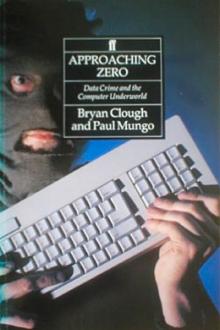The Kidnap Years: by David Stout (popular books of all time TXT) 📗

- Author: David Stout
Book online «The Kidnap Years: by David Stout (popular books of all time TXT) 📗». Author David Stout
The couple in Bridgeport readily confirmed Brinkert’s account.
So perhaps the case against Sharpe was really not so strong. Perhaps there was no case at all. One has to wonder if Schwarzkopf and the New Jersey detectives went to bed that night with chills in their stomachs. But the real nightmare would come the following day, Saturday, June 11.
The suicide of Violet Sharpe was the lead story in the New York Times that Saturday. It quoted Colonel Schwarzkopf as declaring that the death confirmed “the suspicion of the investigating authorities concerning her guilty knowledge of the crime against Charles A. Lindbergh Jr.”49
The article went on in that vein as Schwarzkopf and Walsh recalled that she had lied about her whereabouts the night of the kidnapping and apparently lied about knowing Ernest Brinkert, who had very likely graduated from minor crime to kidnapping and murder, with Sharpe’s inside help. At least, that was the obvious implication.
“Of all the 29 servants in the Lindbergh and Morrow homes that were questioned by us after the kidnapping, Miss Sharpe was the only one who could not tell a story that stood up,” Walsh said. As for the money in Sharpe’s savings account, he said, “I’d feel quite comfortable if I had as much.”
Even as hundreds of thousands of people were reading the damning remarks of Schwarzkopf and Walsh in Saturday morning’s newspapers, the terrible truth was emerging.
First, a butler at the Morrow estate remembered something. “The man you’re looking for is Ernie Miller, not Ernest Brinkert,” he told the police on Saturday. The butler had recalled that Sharpe was acquainted with a young man named Ernest Miller from Closter, another community in Bergen County, New Jersey, not far from Englewood. Sure enough, Ernest Miller was located on Saturday and said that he’d gone to the roadhouse with Sharpe the night of March 1.
Later Saturday, a young woman from Palisades Park in Bergen County told the police that she and a young man, also from Closter, had been the other couple on the March 1 outing. And no, a man named Ernest Brinkert had not been with them.
The recollections of Ernest Miller and the young woman from Palisades Park about the trip to the roadhouse coincided in every detail with the account that Sharpe had given.
What must Colonel Schwarzkopf and the detectives have felt as they realized that Sharpe, who had admittedly lied at first, had told the truth in the end? In their earlier comments, Schwarzkopf and his men had virtually convicted her. Now there would have to be another announcement, a humiliating one.
As Inspector Walsh put it in a Saturday evening news conference, “a chap named Ernie Miller” had indeed confirmed Sharpe’s story “and says he cannot understand why she kept it from us.”50
“This is a peculiar turn of events,” Walsh said lamely. “It is no fault of ours… I cannot understand why this girl, if she had nothing to do with the kidnapping, preferred death to revealing Miller’s name. I cannot understand it at all.”
But in her June 7 letter to a friend in Britain, Sharpe had told of her poor health, her homesickness, the pressure she was under. Elizabeth Morrow, Anne Lindbergh’s mother, was a woman with traditional attitudes, and Sharpe may have feared she would lose her job if Mrs. Morrow found out about the trip to the roadhouse. Perhaps that was why she lied about it.
In short, Violet Sharpe may have been on the verge of a nervous breakdown. How else to explain her mistake in looking at a photo of Ernest Brinkert and identifying him as her companion the night of March 1?
The New York Times reported in a front-page article on Sunday, June 12, that “a sudden twist” in the Lindbergh case tended to clear Sharpe. Her sister condemned the police. “Ever since the baby disappeared, Violet was badgered and questioned until she did not know what she was saying or doing,” Emily Sharpe said. “She was driven nearly mad.”
Yet Schwarzkopf, who had declared Sharpe guilty of something, still would not exonerate her. “The fact still remains that conflicting statements were made,” he told reporters. He insisted that she had not been subjected to undue pressure. But how likely was it that New Jersey policemen of the 1930s, working on the biggest case of their careers, took pains to be kind and courteous to her? In fairness, they were under enormous stress. They were also unfettered by Supreme Court rulings that would be handed down three decades later, rulings that would offer some protection to unsophisticated people of modest means who panic under police scrutiny—people like Violet Sharpe.
Is it conceivable that Sharpe took her own life because she thought she had inadvertently given the kidnapper or kidnappers information about the Lindbergh household? Yes, it is conceivable. But all these decades later, no evidence to support that idea has surfaced. All she seems to have been guilty of was foolishly lying.
Violet Sharpe was buried in Brookside Cemetery in Englewood, which is also the resting place of Anne Lindbergh’s father, Dwight Morrow. Colonel Schwarzkopf and his men had to shake off whatever guilt and embarrassment they felt. With bills from the ransom coming into banks sporadically, they had a money trail to follow. Were there any other clues, any avenues of investigation free of emotion and guided by pure science?
Yes.
CHAPTER SIXTEEN
THE MAN WHO LOVED TREES
Madison, Wisconsin
Early 1933
It was so fitting that Arthur Koehler had but one hobby: cabinetmaking.
From his boyhood in Manitowoc, Wisconsin, where he was born on June 4, 1885, Koehler was fascinated by trees. He loved the smell of a forest, loved the





Comments (0)